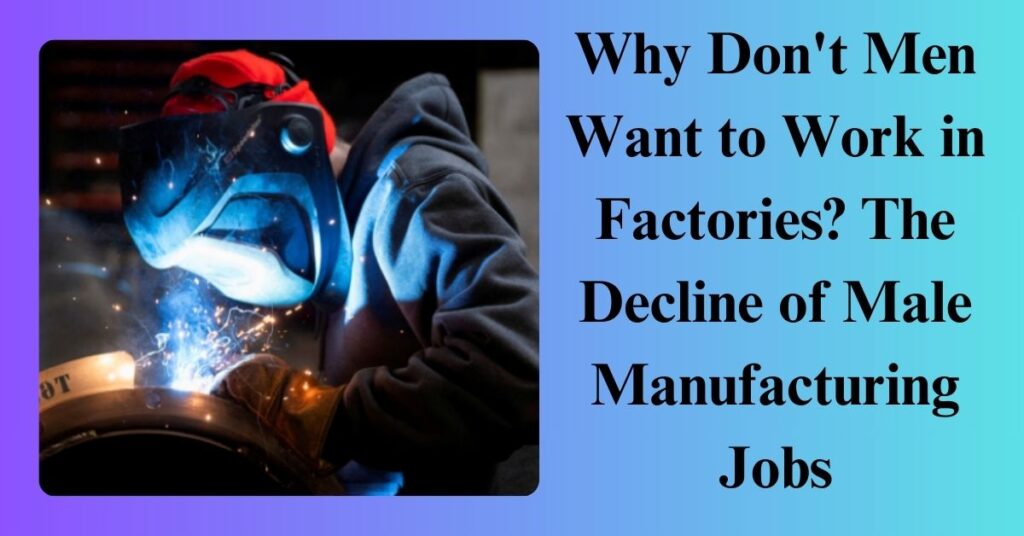Why Don’t Men Want to Work in Factories?
Why Don’t Men Want to Work in Factories?: Despite political efforts to revive the American manufacturing industry, many men are leaving factory jobs. This trend raises questions about the future of the manufacturing workforce and the cultural perception surrounding these roles.
The Changing Allure of Factory Work
Historically, factory jobs have been viewed as stable and respectable, often associated with the American Dream. However, recent studies suggest a shift in this perception. While 80% of Americans support the idea of increasing manufacturing jobs, only 25% express interest in filling those positions. Factors contributing to this decline include physically demanding work, low wages compared to other sectors, and a lack of flexibility.
Automation and Technological Advances
The rise of automation has significantly impacted the manufacturing sector. The World Economic Forum estimates that 85 million jobs could be replaced by machines by 2025, while 97 million new jobs could emerge that are better suited to the new division of labor between humans and machines. This shift will require a workforce with diverse skills, making traditional factory roles less likely.
Generational Priorities and Work-Life Balance
Younger generations value work-life balance, flexibility, and meaningful work. Factory jobs, often characterized by rigid schedules and repetitive tasks, may not align with these values. Furthermore, the lack of remote work options in the manufacturing industry further reduces its appeal to younger workers.
Labor Shortage and Aging Workforce
The manufacturing industry is facing a significant labor shortage, with estimates suggesting that 1.9 million jobs could be unfilled by 2033 if the talent gap is not addressed. As enough skilled workers retire without being adequately replaced, an aging workforce will exacerbate this problem. Despite flexible schedules, competitive benefits, and training programs in efforts to attract young workers, challenges remain.
Cultural Perceptions and the “Masculine” Work Narrative
Some political narratives idealize manufacturing jobs as inherently “masculine” and essential to national identity. However, this perspective may not appeal to modern workers who seek diverse and inclusive work environments. The emphasis on traditional gender roles in these narratives may alienate potential workers who do not identify with this approach.
Why Don’t Men Want to Work in Factories?
A multi-pronged approach is needed to address the decline in interest in factory work. This includes modernizing manufacturing jobs to incorporate advanced technologies, providing competitive compensation, and redefining cultural perceptions to reflect the changing nature of work. By aligning manufacturing jobs with the values and expectations of today’s workforce, the industry can attract a new generation of skilled workers.
In conclusion, the reason why men are reluctant to work in factories is a combination of economic, technological and cultural factors. Understanding and addressing these factors is crucial to revitalizing the manufacturing sector and ensuring its sustainability in a modern economy.




